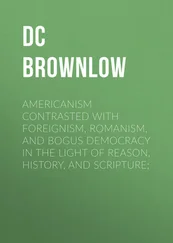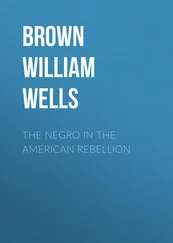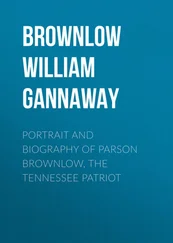William Brown - Stephen Arnold Douglas
Здесь есть возможность читать онлайн «William Brown - Stephen Arnold Douglas» — ознакомительный отрывок электронной книги совершенно бесплатно, а после прочтения отрывка купить полную версию. В некоторых случаях можно слушать аудио, скачать через торрент в формате fb2 и присутствует краткое содержание. Жанр: foreign_antique, foreign_prose, на английском языке. Описание произведения, (предисловие) а так же отзывы посетителей доступны на портале библиотеки ЛибКат.
- Название:Stephen Arnold Douglas
- Автор:
- Жанр:
- Год:неизвестен
- ISBN:нет данных
- Рейтинг книги:3 / 5. Голосов: 1
-
Избранное:Добавить в избранное
- Отзывы:
-
Ваша оценка:
- 60
- 1
- 2
- 3
- 4
- 5
Stephen Arnold Douglas: краткое содержание, описание и аннотация
Предлагаем к чтению аннотацию, описание, краткое содержание или предисловие (зависит от того, что написал сам автор книги «Stephen Arnold Douglas»). Если вы не нашли необходимую информацию о книге — напишите в комментариях, мы постараемся отыскать её.
Stephen Arnold Douglas — читать онлайн ознакомительный отрывок
Ниже представлен текст книги, разбитый по страницам. Система сохранения места последней прочитанной страницы, позволяет с удобством читать онлайн бесплатно книгу «Stephen Arnold Douglas», без необходимости каждый раз заново искать на чём Вы остановились. Поставьте закладку, и сможете в любой момент перейти на страницу, на которой закончили чтение.
Интервал:
Закладка:
William Garrott Brown
Stephen Arnold Douglas
CHAPTER I
YOUTH AND THE WEST
The ten years of American history from 1850 to 1860 have a fascination second only to that of the four years which followed. Indeed, unless one has a taste for military science, it is a question whether the great war itself is more absorbing than the great debate that led up to it; whether even Gettysburg and Chickamauga, the March to the Sea, the Wilderness, Appomattox, are of more surpassing interest than the dramatic political changes, – the downfall of the Whig party, the swift rise and the equally swift submergence of the Know-Nothing party, the birth of the Republican party, the disruption and overthrow of the long-dominant Democratic party, – through which the country came at last to see that only the sword could make an end of the long controversy between the North and the South.
The first years of the decade were marked by the passing of one group of statesmen and the rise of another group. Calhoun's last speech in the Senate was read at the beginning of the debate over those measures which finally took shape as the Compromise of 1850. The Compromise was the last instance of the leadership of Clay. The famous Seventh of March speech in defense of it was Webster's last notable oration. These voices stilled, many others took up the pregnant theme. Davis and Toombs and Stephens and other well-trained Southern statesmen defended slavery aggressively; Seward and Sumner and Chase insisted on a hearing for the aggressive anti-slavery sentiment; Cass and Buchanan maintained for a time their places as leaders in the school of compromise. But from the death of Clay to the presidential election of 1860 the most resonant voice of them all was the voice of Stephen Arnold Douglas. It is scarcely too much to say that during the whole period the centre of the stage was his, and his the most stirring part. In 1861, the curtain fell upon him still resolute, vigorous, commanding. When it rose again for another scene, he was gone so completely that nowadays it is hard for us to understand what a place he had. Three biographers writing near the time of his death were mainly concerned to explain how he came to be first in the minds of his contemporaries. A biographer writing now must try to explain why he has been so lightly esteemed by that posterity to which they confidently committed his fame. Blind Tom, the negro mimic, having once heard him speak, was wont for many years to entertain curious audiences by reproducing those swelling tones in which he rolled out his defense of popular sovereignty, and it is not improbable that Douglas owes to the marvelous imitator of sounds a considerable part of such fame as he has among uneducated men in our time. Among historical students, however seriously his deserts are questioned, there is no question of the importance of his career.
He was born April 23, 1813, at Brandon, Vermont, the son of Stephen Arnold Douglas and Sarah Fisk, his wife. His father, a successful physician, was doubtless of Scotch descent; but the founder of the Douglas family in America was married in Northamptonshire. He landed on Cape Ann in 1639–40, but in 1660 he made his home at New London, Connecticut. Dr. Douglas's mother was an Arnold of Rhode Island, descended from that Governor Arnold who was associated with Roger Williams in the founding of the colony. Sarah Fisk's mother was also an Arnold, and of the same family. Their son was therefore of good New England stock, and amply entitled to his middle name. Dr. Douglas died suddenly of apoplexy in July, 1813; it is said that he held the infant Stephen in his arms when he was stricken. His widow made her home with a bachelor brother on a farm near Brandon, and the boy's early years were passed in an environment familiar to readers of American biography – the simplicity, the poverty, the industry, and the serious-mindedness of rural New England. He was delicate, with a little bit of a body and a very large head, but quick-witted and precocious, and until he was fifteen years of age his elders permitted him to look forward to a collegiate education and a professional career.
But by that time the uncle was married, and an heir was born to him. Stephen was therefore made to understand that the expense of his education could be met only from his mother's limited means. He promptly resolved to learn a trade, walked fourteen miles to the neighboring town of Middlebury, and apprenticed himself to a cabinet-maker. He worked at cabinet-making two years, and afterwards, even when he had risen so high that many of his countrymen were willing he should try his hand at making cabinets of men, he protested that those two years were by far the happiest of his life, and that he would never willingly have exchanged his place in the Middlebury workshop for any other place whatsoever. As it was, he left it because he was not strong enough for that sort of work.
The following year he pursued his studies at the academy of Brandon. Then his mother married again, and he went with her to the home of his stepfather, Gehazi Granger, Esquire, near Canandaigua, New York, and finished his schooling at the Canandaigua Academy, which appears to have been an excellent one. Meanwhile, he also read law, and showed great proficiency both in his classical and his legal studies. Not much is on record concerning his schoolboy life. It is known, however, that he had a way of making his fellows like him, so that they of their own accord put him forward, and that he had a lively interest in politics. It is said that even so early as the campaign of 1828, when he was but fifteen, he organized a band of his playmates to make war on the "coffin handbills" wherewith the Adams men sought to besmirch the military fame of General Jackson, already become his hero. At Canandaigua, four years later, he espoused the same cause in debating clubs, and won an ascendency among his fellows by his readiness and the extent of his information. In the life of another man, these boyish performances might be set down merely as signs of promise; but Douglas was so soon immersed in real politics, and rose to distinction with such astounding swiftness, that his performances as a schoolboy may well be accounted the actual beginning, and not merely a premonition, of his career. He was only twenty, when, in June, 1833, he set forth to enter upon it.
Save that he was going West, he does not seem to have had any destination clearly in mind. He carried letters to certain persons in Cleveland, and stopped there to see them, and so made the acquaintance of Sherlock J. Andrews, a leading lawyer of the town, who persuaded him to remain and read law in his office until a year should elapse and he could be admitted to the Ohio bar. However, in less than a week he fell ill of a fever which did not leave him until the expense of it had well-nigh emptied his slender purse. His physicians, fearing he was too slight and delicate for Western hardships, urged him to go back to Canandaigua, but when he left Cleveland he again turned westward, resolved in his own mind never to go back without the evidences of success in his life. It is doubtful if among all the thousands who in those days were constantly faring westward, from New England towns and the parishes of Virginia and the Carolinas, there ever was a youth more resolutely and boldly addressed to opportunity than he. Poor, broken in health, almost diminutive in physical stature, and quite unknown, he made his way first to Cincinnati, then to Louisville, then to St. Louis, in search of work. Coming almost to the end of his resources, he reasoned that it would be best for him to seek some country town, where his expenses would be slight; and guided merely by a book of travel he had read he fixed on a town which, as it happened, bore the name of his political patron saint. In November, 1833, being now twenty years and six months old, he arrived at Jacksonville, Illinois, with a sum total of thirty-seven cents in his pocket. The glimpses we get of him during his wanderings, from the recollections of certain men with whom he made acquaintance in stages and on river steamboats, make a curious and striking picture of American character. The feverish, high-strung boy was never dismayed and never a dreamer, but always confident, purposeful, good-humored.
Читать дальшеИнтервал:
Закладка:
Похожие книги на «Stephen Arnold Douglas»
Представляем Вашему вниманию похожие книги на «Stephen Arnold Douglas» списком для выбора. Мы отобрали схожую по названию и смыслу литературу в надежде предоставить читателям больше вариантов отыскать новые, интересные, ещё непрочитанные произведения.
Обсуждение, отзывы о книге «Stephen Arnold Douglas» и просто собственные мнения читателей. Оставьте ваши комментарии, напишите, что Вы думаете о произведении, его смысле или главных героях. Укажите что конкретно понравилось, а что нет, и почему Вы так считаете.












